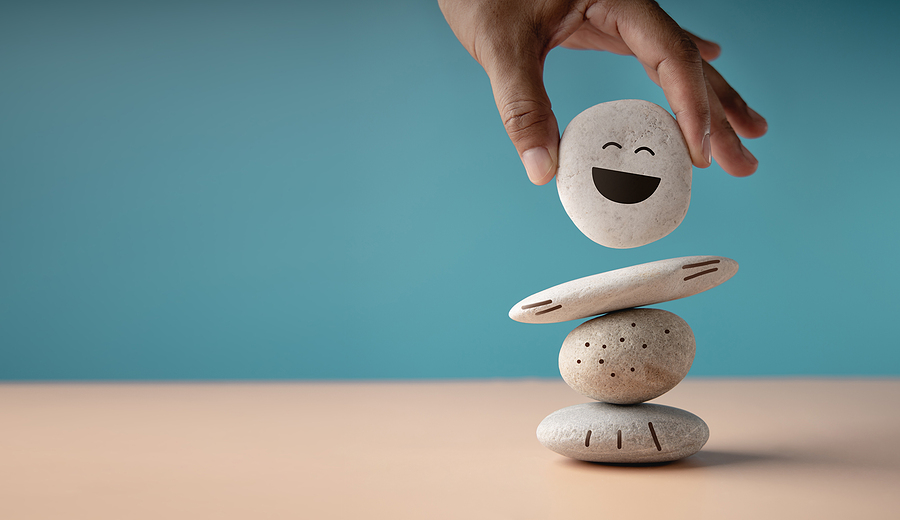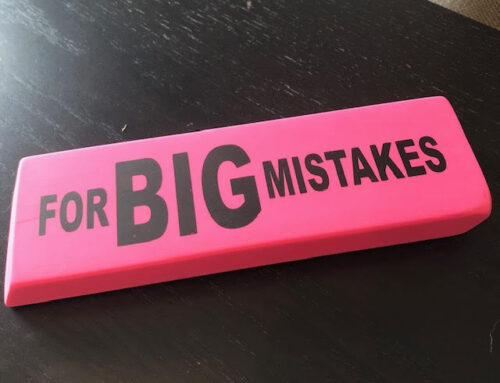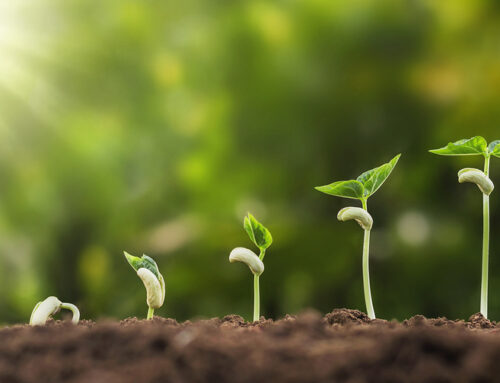We know change is good for us, especially when we are making changes to improve our overall health and wellbeing.
But knowing does not equal doing. Why is it so hard to change?
There are two challenges that often get in our way. Understanding these challenges will help us bridge the gap between our intentions and our actions.
Our first challenge is that goals alone do not lead to success. Yes, goals are essential:
- Goals give us a sense of purpose
- Goals serve as inspiration
- Goals keep us focused
But goals merely describe our ideal outcome. They don’t put us on the path to reach that outcome.
Our goals require practical support to translate into the results we desire.
Our second challenge is that willpower is unreliable. (The same is true for willpower’s close relative: motivation.)
Willpower is often thought of as a character trait, much like kindness and integrity. You might look at another successful person and think, ‘I wish I had as much willpower as she does.’ But willpower is more of a muscle that tires with use. After we have taxed our willpower muscle, we need a recovery period to replenish our willpower stores.
Imagine walking into your home after a long run, your muscles aching for a rest. If your spouse or a friend suggests going for a walk, you’ll likely cite your need to rest. The same is true for our willpower. Once we’ve used up our willpower, we need to give it time to replenish.
And the busier and more stressful our days are, the quicker we burn through our willpower reserves. This is why my best intentions about healthy eating are often tossed aside at the end of a long day. When my willpower reserves are low, I succumb to what I like to call the “what the heck” effect.
Thankfully, our brains have devised a much more effective, reliable, and energy-conserving approach: habits.
“We first make our habits, and then our habits make us.” – John Dryden
Our habits drive our results in two key ways.
- Habits consume less energy than willpower or discipline
Think of how much easier it is to hike on a clear, well-maintained trail, as opposed to scrambling over fallen trees and rocky slopes. Habits enable us to do activities automatically. In other words, we can complete the tasks without conscious thought.
When we first learn a skill, such as a new dance move, repetition is key. Our prefrontal cortex, responsible for our working memory, and other complex cognitive behaviour, including decision making, social behaviour, and the expression of our personality, is busy figuring out the complicated sequence. But once we have repeated the steps enough times, our short-term memory can be freed up by as much as 90 percent. This leaves our brain free to focus on other concepts.
Automaticity is why professional athletes, at the top of their games, practice basic skills repeatedly.
Once we learn something in depth, we can be more fluid and flexible. We can adjust our knowledge to each unique situation.
Our habits enable us to perform at elite levels. As Pablo Picasso once said, “Learn the rules like a pro, so you can break them like an artist.”
- Habits diminish decision fatigue
We are bombarded with the need for decisions every day. It is estimated adults make 35,000 semi-conscious decisions each day.
Some of these decisions are big and others are minor: Blue or black socks today? What’s for lunch?
Despite how seemingly minor many of these decisions are, we face exponentially more decisions every day than we can effectively navigate.
Making decisions consumes energy. Decisions require us to compare options, weigh the pros and cons, consider possible outcomes, consult with others and more. It’s no surprise we feel mentally fatigued at the end of the day!
Once we pass our decision threshold, we experience decision fatigue, and begin using sub-optimal decision-making patterns like:
- Avoidance: Failing to make a decision altogether
- Compliance: Going along with a decision to please others, regardless of whether it is the best decision for the situation
- Impulsiveness: Defaulting to the first option to get the decision over with
Researchers have determined our sweet spot is an estimated 75 decisions each day before we are depleted.
Thankfully, our habits help to remove decision points. Healthy habits related to our exercise, sleep, nutrition, recovery and more, all serve to support our wellbeing without leading to cognitive overload.
We have dedicated a module to strategies you can use to effectively master deliberate habits in Prioritize Your Wellbeing, part of our Thrive Mindset series, and you can learn more about those strategies here.
In the meantime, what new habit would you like to commit to, so you can get one step closer to celebrating your success? Please share with us in the comments, so we can cheer you on!







Leave A Comment